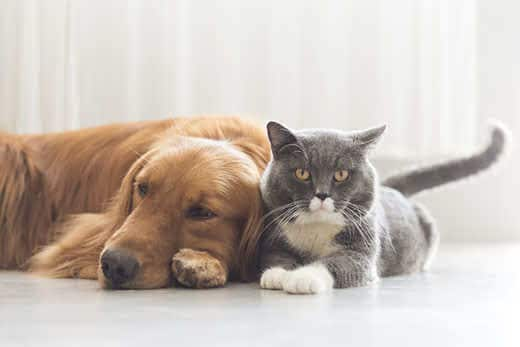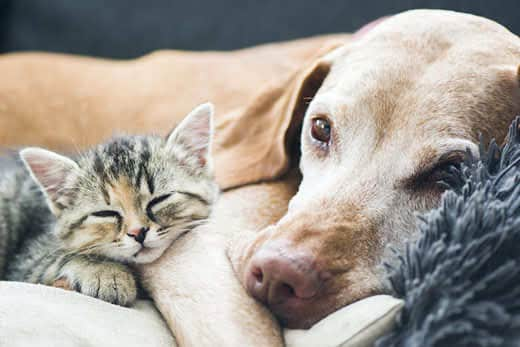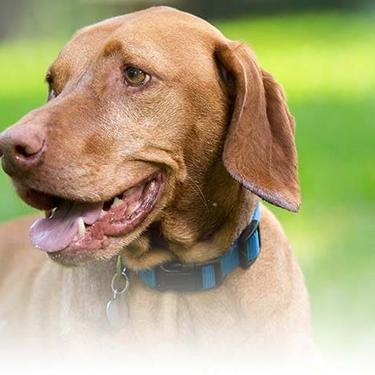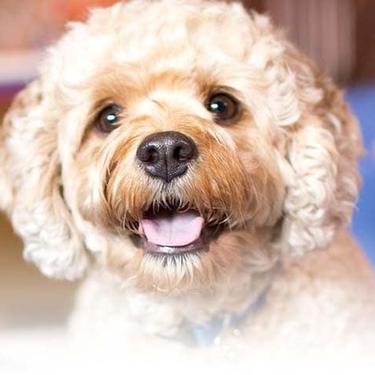
-
Find the right food for your pet
Take this quiz to see which food may be the best for your furry friend.
Find the right food for your pet
Take this quiz to see which food may be the best for your furry friend.
Featured products
 Small & Mini Savory Stew with Chicken & Vegetables Dog Food
Small & Mini Savory Stew with Chicken & Vegetables Dog FoodA delicious complement to the nutrition of Science Diet Small & Mini 7+ dog food
Shop Now Adult 7+ Perfect Digestion Chicken, Whole Oats & Brown Rice Recipe Dog Food
Adult 7+ Perfect Digestion Chicken, Whole Oats & Brown Rice Recipe Dog FoodScience Diet's breakthrough nutrition supports ultimate digestive well-being & healthy microbiome for dogs age 7+
Shop Now Adult Healthy Cuisine Roasted Chicken, Carrots & Spinach Stew Dog Food
Adult Healthy Cuisine Roasted Chicken, Carrots & Spinach Stew Dog FoodDelicious roasted chicken paired with tender vegetables in a succulent stew
Shop NowFeatured products
 Adult 7+ Tender Tuna Dinner Cat Food
Adult 7+ Tender Tuna Dinner Cat FoodWith delicious chunks in a decadent gravy
Shop Now Adult Savory Entrée Can Variety Pack Cat Food
Adult Savory Entrée Can Variety Pack Cat FoodPrecisely balanced nutrition with the delicious taste of savory minced chicken to help fuel the energy needs of cats during the prime of their life
Shop Now Adult 7+ Senior Vitality Chicken & Vegetable Stew Cat Food
Adult 7+ Senior Vitality Chicken & Vegetable Stew Cat FoodImproves Everyday Ability to Get Up & Go
Shop Now -
Dog
- Dog Tips & Articles
-
Health Category
- Weight
- Food & Environmental Sensitivities
- Urinary
- Digestive
- Joint
- Kidney
-
Life Stage
- Puppy Nutrition
- Adult Nutrition
- Senior Nutrition
Cat
- Cat Tips & Articles
-
Health Category
- Weight
- Skin & Food Sensitivities
- Urinary
- Digestive
- Kidney
-
Life Stage
- Kitten Nutrition
- Adult Nutrition
Featured articles
 Why Are Dogs and Cats So Cute?
Why Are Dogs and Cats So Cute?If waggy puppy dog tails and furry kitten yawns make you swoon, you're not alone. Why are cats so cute? And, dogs too! Let's find out!
Read More Does My Pet Hate Me?
Does My Pet Hate Me?Learn tips for bonding with your pet if you've ever thought, 'My dog doesn't like me, or 'Why do I have a standoffish cat?'
Read More Do Dogs and Cats have Belly Buttons?
Do Dogs and Cats have Belly Buttons?Learn whether cats & dogs have belly buttons like humans, what the function is, and if there are any health concerns associated with it.
Read More -


As lovable as dogs are, let's face it: They sometimes do things that are kind of gross. One of those gross behaviors is raiding your cat's litter box and eating what they find there. Learn why your pup is prone to this behavior and how to keep dogs out of the litter box for good.
My Dog Eats Cat Poop from the Litter Box

While it may be foul to humans, eating cat poop is somewhat normal dog behavior, says American Kennel Club (AKC). Dogs are natural scavengers who tend to devour anything with a strong smell, even poop. To the highly attuned nose of a dog, cat poop smells like cat food, which, as far as your dog is concerned, is a special treat. Once your pooch discovers these tasty nuggets in the litter box, it's like they've hit the jackpot.
But despite this behavior being enjoyable for your dog, it should be discouraged, and not simply because it's gross. Cat feces can carry harmful bacteria, including salmonella, which could make your dog sick. It also can carry a parasite that causes a condition called toxoplasmosis that can be harmful to humans if your dog licks your face, says the Centers for Disease Control and Prevention. Cat litter can also harm your dog if consumed in large enough quantities to cause an intestinal blockage.
How to Keep Dogs Out of the Litter Box
Keeping your dog out of the litter box might be easier said than done. The best method depends on the size, temperament and trainability of your dog. Your cat might also have a say in whether certain methods will work.
Clean the Litter Box Often
One of the most effective methods is scooping the box often, suggests PetSafe. While it might not be realistic to clean up after your kitty every time they go, cleaning the box once or twice a day will help to cut down on your dog's opportunities. A self-cleaning robot litter box can make this task easier, if your cat will tolerate it. You could also switch to an odor-neutralizing litter to discourage your pup.



Tasty Tips
Train Your Dog
The most permanent way to keep your pup away from the cat box is to train them to leave it alone. Before you begin, make sure your dog is getting high-quality dog food so that they're not missing any nutrients in their diet. They should also be getting plenty of exercise and mental stimulation so that they aren't exploring the litter box out of boredom. Once those bases are covered, try following these steps from the AKC to teach your dog the "leave it" command:
Hold a treat on the floor under one hand and allow your dog to sniff it.
When your dog loses interest and gives up, say "leave it" as they're turning away.
With your free hand, give them a better treat than the covered one.
Gradually work up to telling them to "leave it" while they're still inspecting the treat. Reward them with a better treat when they turn away.
Once they learn to associate the command with getting a better treat than the one they're investigating, practice letting them sniff the litter box and telling them to "leave it."
Restrict Access
If all else fails, you might simply need to restrict your dog's access to the litter box. If you have a small dog, this might be as simple as elevating the litter box out of reach, or placing it inside a bathtub. For larger dogs, a covered cat box might work if your cat will tolerate a lid. If your cat vetoes a lidded box, installing a pet gate or a cat flap to the room where the litter box is stored might be your best option.
Whichever method you try, be sure to keep your kitty's preferences in mind. If you need to relocate the litter box, move it gradually, in small increments, to give your cat time to get used to the idea. Similarly, changing litter should be done gradually, mixing a little bit of the new litter with the old and increasing new litter slowly as your cat becomes used to it.


Jean Marie Bauhaus is a pet parent, pet blogger, and novelist from Tulsa, Oklahoma, where she usually writes under the supervision of a lapful of fur babies.
Related products

Science Diet's breakthrough nutrition supports ultimate digestive well-being & healthy microbiome for dogs age 7+

Delicious braised beef paired with tender vegetables in a succulent stew

A delicious complement to the nutrition of Science Diet Small & Mini 7+ dog food

Delicious roasted chicken paired with tender vegetables in a succulent stew
Related articles

Your dog's coat and skin are a big part of your dog's overall health. Ensure you keep your dog's coat healthy, by following these simple tips.

Hill's Science Diet Small & Toy Breed dog foods are designed to meet the nutritional needs for your small dog at every life stage. Learn more here.

Large and giant breed puppies have different nutritional needs than other dogs. Learn how to provide the special care they need to grow up big and strong.

Learn about choosing the right food for your mature or older dog, ensuring he receives the correct balance of nutrition.

Put your dog on a diet without them knowing
Our low calorie formula helps you control your dog's weight. It's packed with high-quality protein for building lean muscles, and made with purposeful ingredients for a flavorful, nutritious meal. Clinically proven antioxidants, Vitamin C+E, help promote a healthy immune system.
Put your dog on a diet without them knowing
Our low calorie formula helps you control your dog's weight. It's packed with high-quality protein for building lean muscles, and made with purposeful ingredients for a flavorful, nutritious meal. Clinically proven antioxidants, Vitamin C+E, help promote a healthy immune system.

